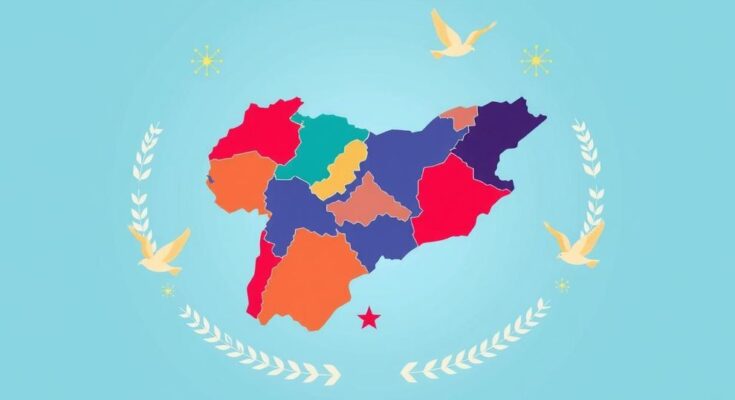The article discusses the need for nuanced U.S. foreign policy toward Eritrea, emphasizing the importance of understanding its complex history and geopolitical context. It highlights misconceptions that surround Eritrea and critiques misguided policy recommendations such as sanctions or regime change, advocating for approaches that respect Eritrea’s sovereignty and focus on mutual interests to foster stability in the Horn of Africa.
The Horn of Africa faces persistent instability and significant challenges, making it vital for U.S. policy Advisors to adopt a nuanced foreign policy toward the region. Understanding the historical, cultural, and political complexities is essential for formulating effective strategies. A balanced approach prioritizing collaboration with regional partners stands crucial in addressing shared concerns while avoiding oversimplifications that could harm U.S. credibility and strategic interests.
Eritrea exemplifies the issues that arise from oversimplified foreign policy viewpoints, such as the label “North Korea of Africa,” which obscures its intricate political context. Accusations of terrorism without formal designations, as well as demanding the immediate adoption of Western-style democracy, further illustrate how these reductive narratives overlook Eritrea’s challenges and realities, ultimately detracting from meaningful foreign policy discussions.
Western nations often struggle to influence Eritrea effectively due to a lack of understanding of its historical context, which is marked by deep-seated mistrust toward foreign powers. Additionally, recognizing Eritrea’s pressing national security needs is essential for navigating its complex political landscape and formulating relevant policies.
Eritrea’s tumultuous history, characterized by colonialism, occupation, and foreign exploitation, has fostered a staunch desire for independence and self-reliance. With over fifty years of inequitable foreign rule, including Italian colonization and Ethiopian annexation, the nation’s painful past influences its present-day governance and interactions with the international community.
Efforts by the international community to support Eritrea have often fallen short, as seen in the failed enforcement of the UN-sponsored Boundary Commission’s ruling in 2002 awarding Badme to Eritrea. Coupled with economic sanctions that severely harm its economy, Eritrea has had to emphasize self-reliance in striving to recover from external pressures while ensuring its national security concerns are adequately addressed.
Maintaining sovereignty is paramount for Eritrea, which faces a complex dynamic with Ethiopia, its neighbor with ambitions for maritime access and historical claims on Eritrean territory. These geopolitical tensions necessitate a strong national defense policy, which Eritrea has adopted through compulsory military service and a sizeable army, reflecting its commitment to safeguarding its hard-earned independence and stability amidst regional turbulence.
Eritrea’s domestic stability allows it to play a positive role in regional diplomatic channels, fostering collaboration and regional security. Initiatives such as the trilateral meeting with Somalia and Egypt demonstrate Eritrea’s commitment to strengthening ties, providing training assistance vital for Somalia’s National Army, and encouraging harmonious relations among neighboring countries.
Nevertheless, misguided policy recommendations continue to influence discussions on U.S. foreign policy toward Eritrea. Suggestions for increased sanctions, undermining partnerships, or promoting regime change ignore the potential repercussions on civilians and the inefficacy of such measures in enhancing stability. To better engage with Eritrea, U.S. strategies should promote diplomatic collaboration instead of isolating the nation, as this may push Eritrea toward non-Western powers and exacerbate existing tensions.
In conclusion, Eritrea is often misunderstood and negatively labeled, yet plays a crucial role in maintaining stability within the Horn of Africa. Its intricate history and current challenges demand a nuanced approach to engage effectively. Policies aimed at regime change or sanctions could hinder progress, whereas a balanced strategy respecting Eritrea’s sovereignty and recognizing its security concerns can yield significant benefits for the nation, the wider region, and U.S. interests.
Eritrea’s complex history and geopolitical position necessitate a sophisticated understanding of its role in the Horn of Africa. Misguided foreign policy recommendations, such as sanctions and regime change, could exacerbate regional issues rather than foster stability. A nuanced, balanced strategy that respects Eritrea’s sovereignty and addresses legitimate security concerns is essential for developing constructive relations and promoting peace and development in the region.
Original Source: moderndiplomacy.eu




